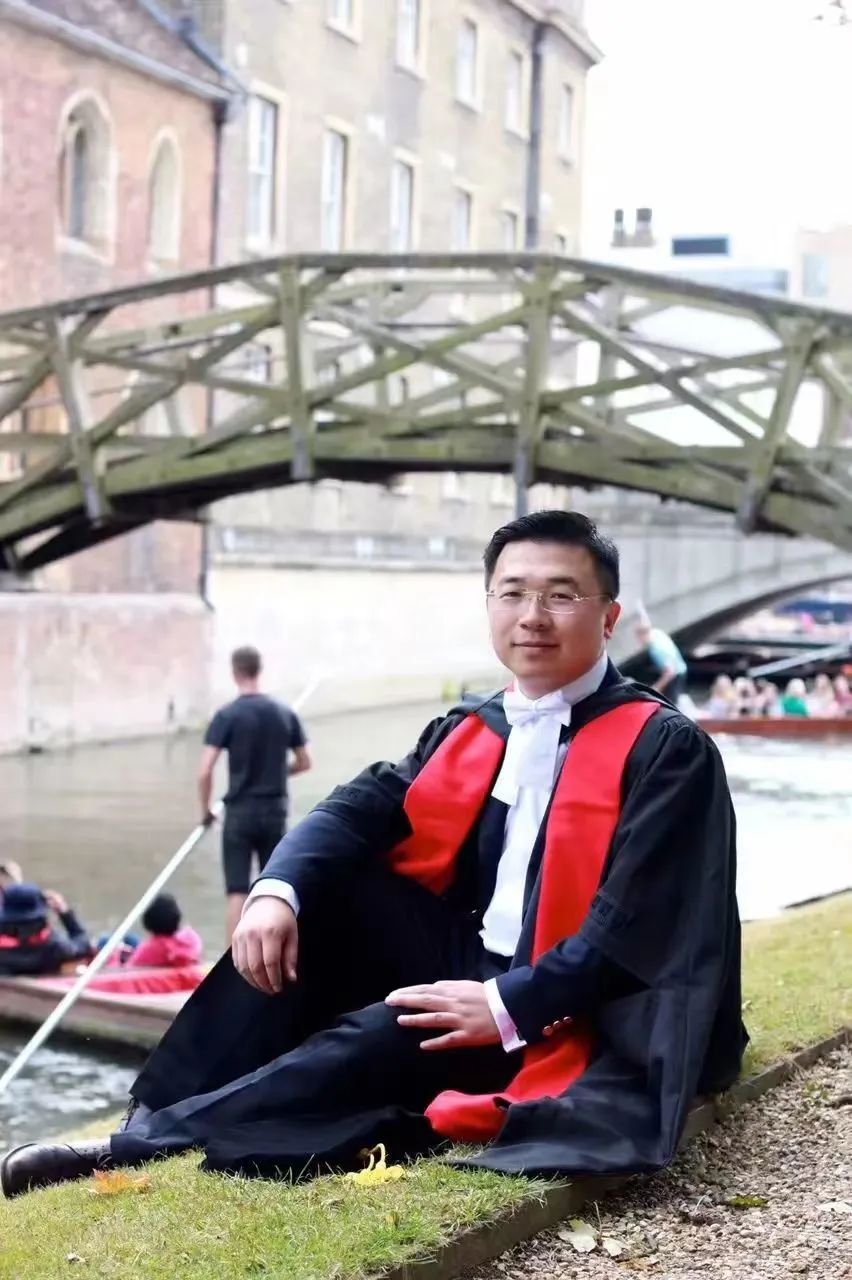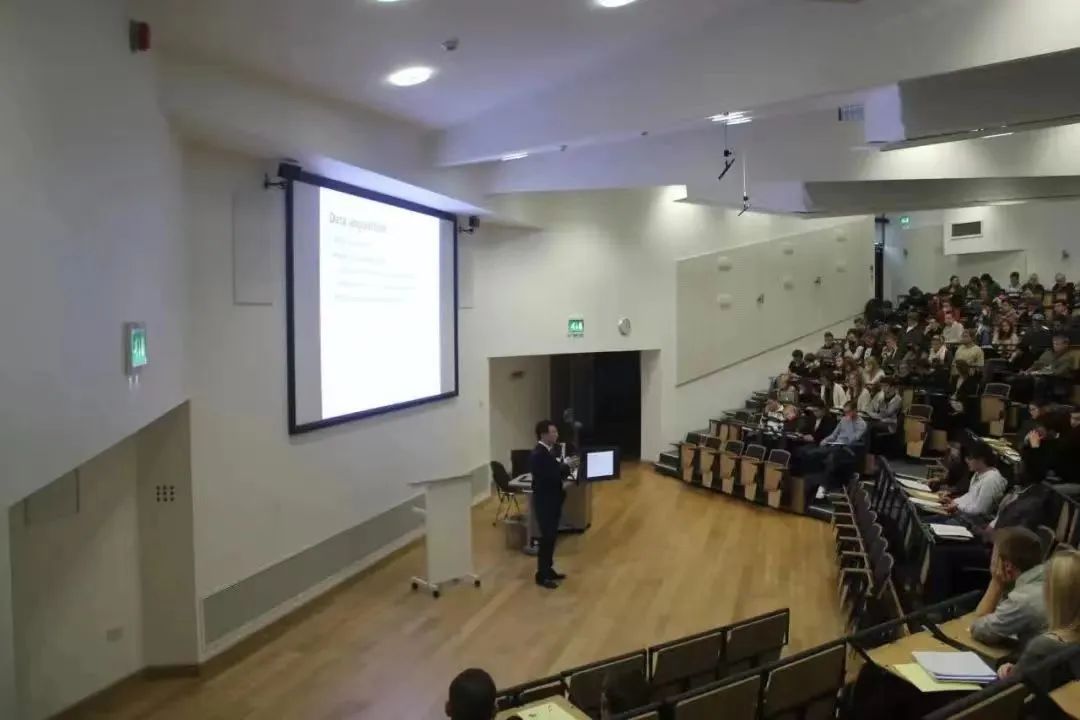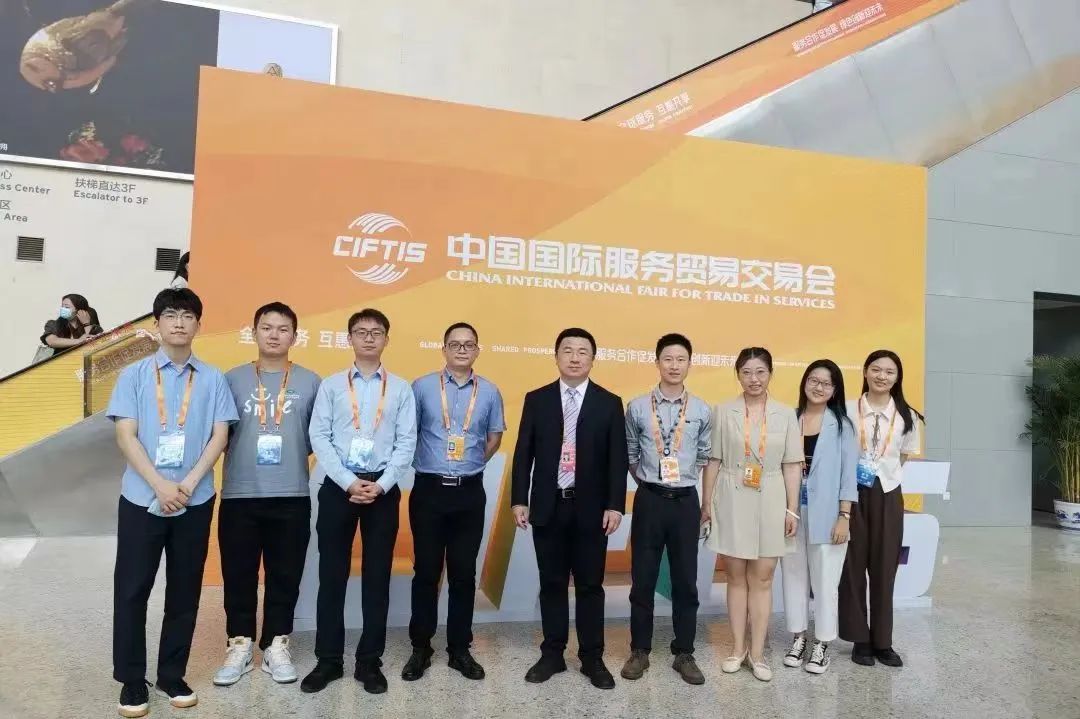Social feelings always hold in store, and the spirit of science will endure forever. The year 2022 marks the 10th anniversary of the School of Social Sciences at Tsinghua University.
Over the decade, Professor Rong Ke has returned to his alma mater, Tsinghua University, to teach, devoting himself to the development of the country’s digital economy. He encourages himself to do well in scholarship amid the intergenerational transmission and inspires his students to dance in tune with the times, do what they can best on the grand stage of the country, and lead a fulfilling life.
Rong Ke’s office was in a mess recently. Books and magazines that came in the mail cluttered his small room, which makes people feel a little bit confined. However, the sea of books and volumes was dotted with green plants and a coffee machine. Such a scene is typical of Rong Ke’s style, thus becoming a reminder to visitors: this is a place where Rong Ke lives.
“Let me make you a coffee.”
Pulling over some paper boxes and stacking them on top of each other to serve as a coffee table for us, he took several paper cups from under the piled-up tables nearby, poured hot coffee, and placed them on the “coffee table” in front of us. The coffee pot became empty after just two cups. He handed us two cream balls out of nowhere and gestured us to have our coffee first before re-making another pot for himself.
In the warm aroma of the coffee, I looked around the room and noticed that the most conspicuous thing was the four or five framed photos on the table, all of which are of Rong Ke and his wife.
Returning to the motherland
Rong Ke has always had such a joie de vivre. When he lived in Bournemouth by the sea, after his weekday classes, he would go to Old Harry Rocks and sit there in the sea breeze, watching the white cliffs glisten like snow in the sun. He never wandered aimlessly. Every weekend, when he walked along the Jurassic coast, a question would pop into his head, “I’m only in my early 30s. Why do I have to stay here like a retiree?”
Just graduating with a Ph.D., he was then anxious about his teaching job and missed his family so much, but he had nothing to show for his work and no projects to work on. All he could do was to lament to the sea, “the mountains and waters are so good, but I’m so lonely!” Looking back on those days, Rong Ke said, “it is a place for ‘self-cultivation’ anyhow.”
When being dubbed as a “great warrior living in seclusion in the UK, Rong Ke laughed, “I’m not a “great warrior”, but a “small shrimp”. When the “shrimp” felt that he had grown up a bit, he returned home to continue growing with his motherland.”
Six years have passed since Rong Ke returned to Tsinghua in 2016 and started to polish his “digital economy-related courses”. Today, he has already lost his youthful look.
Now if someone asks, “Mr. Rong, what is the key to the prosperity of our country in the next era? And what is the strength that supports our country to build a community with a shared future for mankind?” His answer must be the development of the digital economy. Developing the digital economy is actually an important strategy for grasping the new opportunities of the new round of technological revolution and industrial transformation, and it is also an area he has been focusing on since he was a doctoral student.
Rong Ke once traveled with his mentor to North America where he visited Silicon Valley and numerous companies and even drove by mistake on Highway 1 to the seaside in a foreign country. He was excited, “It’s really great to “travel thousands of miles”. Such experiences have changed me.” He has seen the world and marveled at its amazingness. Seeing the rapid development of China’s manufacturing industry, he couldn’t help but gasp in admiration, “Great!” During his visit to Shenzhen, the creativity, innovation, and inexhaustible entrepreneurial spirit of those companies have touched him so much that he is willing to link his destiny deeply with the development of this country.
Since Rong Ke joined Tsinghua as a teacher, his idea of doing something has always been there. “I want to do something, which remains unchanged now,” he said firmly.
In June 2019, soon after the outbreak of trade disputes between China and the US, Rong Ke received an email from a well-known digital infrastructure company in the country, learning that Country A had imposed a blockade on the company and cut off its chip supplies. Although the company had advanced self-developed chips, the lack of an eco-industrial chain around the chips was a weakness that it could not remedy. The cutoff of chip supplies has sparked the country’s thinking and practice on independent innovation in core technologies such as chip manufacturing and operating systems. Through this email, Rong Ke has also started to help Chinese digital infrastructure companies cultivate their own ecosystem and reduce their independence on overseas technology and hardware supply.
Rong Ke is now able to combine his research with industrial development and contribute to the development of the national digital economy, which makes him so proud and also lives up to his original intention of returning to China. When speaking of the field in which he is now rooted, Rong Ke used the vector sum in mathematics as an analogy, “This angle is your stage – whether you go to the West and stay in the UK or turn around and come back to the East. The angle determines the width and depth of your research. If you choose the right angle, you may get twice the result with half the effort; otherwise, you may waste your efforts or even go in the opposite direction.”

Rong Ke graduated with a PhD from Cambridge University.
Returning to teaching
This is the sixth year that Mr. Rong Ke has taught at Tsinghua. Like many enthusiastic teachers, he will update his courseware every year, weighing every word, adjusting each text box, and looking around for new teaching cases. He has even bought a large screen specially for his office so as to better communicate with his students.
“I feel that I’m not very good at expressing myself in the classroom. But I’m slightly better at discussing with my students when doing research.” To make his lectures more engaging, Rong Ke has been on a constant quest by cooperating with digital economy-related companies and reading books so that his lectures can always keep a close eye on the latest economic hotspots. Bringing traditional economics and management theories into his new research on platforms and ecology related to the digital economy, Rong Ke taught the whole school the ins and outs of the digital economy with his latest teaching materials in an easy-to-understand approach.
“Some of my students who have gone to work in Internet companies after graduation told me that what I teach is very practical and useful. My lectures not only help them get through job interviews easily but also benefit them at work.” This feedback gave him great encouragement. “I believe that teaching is learning. All I can do is to update the course year by year and put the feedback from my students and the research from the industry into my lecture.”
In Rong Ke’s eyes, research and teaching go hand in hand. The up-to-date research results can lead to the dynamic update of the content of courses. “For example, when I was doing research on chips, I would bring the content related to the ecological cultivation of digital chips into the class. Another example, two years ago when I worked with a short video company to conduct research on the gig economy, I brought the content in this regard into the class related to the platform economy and digital economy.”
He is a passionate teacher when he lectures. It is also out of his love for teaching that he highly appreciates the importance the school places on teaching, especially the establishment of the "Tsinghua Teaching Excellence Award”. “It is an award that encourages us to explore and innovate by evaluating the efforts we have made and the results we have achieved in teaching and research in the past few years. It stimulates us to explore new ways of teaching in the new era. In addition, through the award, we get a taste of the meaning of the old Chinese saying which goes that ‘care for the world when you are better off’.” Rong Ke believes that the third distribution carried out by the public interest is a booster for the development of various causes in the country, which allows young people from all walks of life to experiment and give back to society, thus forming a virtuous circle.
“Tsinghua encourages teachers to contribute to society, support the real economy, and serve the national policy. To do scholarship is to bring about some substantial results in virtue, work and words, which should not only be kept in libraries and databases but also be displayed on the land of the country and during the intergenerational transmission.”

Rong Ke gives his first lecture at the Business School, Bournemouth University, UK.
Dancing in tune with the times
Like many young teachers who have been determined to pursue an academic path during their doctoral studies, Rong Ke is also under pressure from all sides. Research and family life are always competing for his time. His weekend schedule is by no means arbitrary. It is often a choice between relaxation and academic work.
“I’m not really a person who likes to stand in the spotlight. But as a teacher at Tsinghua, I’m often invited to give lectures. What’s more, I founded a journal related to the digital economy, so it’s my responsibility to promote it.” Rong Ke is clear that these things take some of his time away from spending with his family.
However, he is not anxious, or rather, no longer anxious.
“The pressure is always there, and the competition is definitely differentiated. What matters is how to pace yourself.” Rong Ke’s WeChat avatar and friend circle background setting are both pictures of his family. When it comes to his daughter, a lively girl with a wide range of interests, such as roller skating, running, ballet, etc., Rong Ke is always glowing and full of enthusiasm. “There was no such plan. I don’t play Go very well, either. But now, I will learn along with her.” Family life has had a big impact on him. “It’s mostly in the mindset. Now I’m not just training myself, but more importantly, the next generation.”
Here, the “next generation” includes not only his daughter but also his students. In the past six years, Rong Ke has trained one doctoral student, two post-docs, and three master students, which is a great relief for him. “Now I am not alone in the fight. We are a TEAM, and they are my young comrades in arms."
Looking back on his first lecture on the podium, Rong Ke is still in awe of the small platform which is no more than three feet wide. He hopes to have students all over the world. “The first time I lectured was in 2011. It was a class on research methodology, which was arranged by the Business School at Bournemouth University in the UK. It was a philosophical course with more than 300 students from different countries, which was a big challenge for me. But how do you know how much potential you have if you don’t challenge yourself?”
After returning to Tsinghua as a teacher, Rong Ke noticed that all Tsinghua students are very good and have so many opportunities and options. However, the fast pace of school life leaves them with insufficient time and space to think calmly.
Today, the digital economy is becoming a key force in restructuring global factor resources, reshaping the global economic structure, and changing the global competitive landscape. As China’s digital economy develops in a big way, the various parts of the digital economy are wonderfully diverse. Rong Ke believes that China has the potential to build a world data governance organization to coordinate factor flows and can play a greater role in the data factor sector. “Future development needs talents. It needs students and the efforts of the next generation.”
When talking about his expectations for his students, Mr. Rong Ke thought quietly for a while and slowly said that he hoped he could guide his students not only to do more academic exploration but also to make a good strategic plan for their lives. “Dance in tune with the times, make a difference on the grand stage of the country, and lead a fulfilling life,” added he.

Rong Ke leads his students to the China International Fair for Trade in Services (CIFTIS) for social practice.